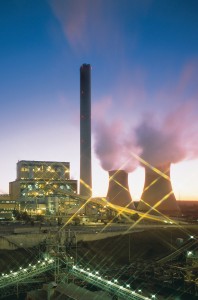While our financial viability does rely on our seminar presentations, we also have the goal of advancing the Power System Protection Engineering profession. Hence, we are willing to make available, absolutely 100% free of any charge, commitment or obligation, some of the supporting documentation for this seminar …
- Protection of Power Station Auxiliary Systems
- Fuses, Over Current and Earth Fault Protection
- High Impedance Differential Protection
- Application to Generators, Transformers and Busbars
- Introduction to Sequence Components
- Transformer Protection
- AC Induction Motor Protection
- AC Synchronous Generator Protection
- Generator Faults
- Generator Events
- Power System Events
The requirements of safety, minimisation of damage to faulted plant, minimisation of consequential damage to healthy plant and maintenance of a stable and secure supply of electricity are paramount to all protection designs. A generator may be exposed to three types of occurrence which require protection schemes to operate effectively and efficiently but in vastly different time frames.
- Generator Fault : This requires instantaneous tripping of the generator to minimise the damage caused. Generator multiphase fault levels may exceed 100kA, whereas, via high resistance earthing techniques, the same generator may have an earth fault level of only a few amperes.
- Generator Event : This is an event local to the generator which will not immediately cause damage but will eventually do so unless rectified. Protection initiates an alarm rapidly to alert the operator and to allow intervention and, if this is unsuccessful, finally tripping before actual generator damage occurs.
- External Event : This is a transmission system event which will not immediately cause damage to the generator and can be rectified by operator intervention. An alarm is generated rapidly to alert the operator of the condition, followed by tripping as necessary if appropriate action is not taken or is not successful. In particular, note that such events affect every generator within a particular power station, and even may affect generators over a wide area. Hence tripping must be delayed as long as possible to avoid widespread system shut-downs, but must nevertheless still provide protection for the affected generating plant.
In this seminar we will consider the application of protection to generators, considering the three occurrences mentioned above. This will facilitate an appreciation of generator protection, the coordination aspects of these protection schemes, and the information required to determine protection settings.
But, beyond the generator itself, the power station engineers and technicians need an intimate understanding of the protection schemes associated with the remaining plant, including busbars, transformers and the many large induction motors.
Thus the task, not only for the protection engineer, but for all engineers and technicians associated with the power station, is to ensure that planning, design, coordination, implementation, commissioning, operation and maintenance of protection systems optimises both the dependability and security of these schemes.
This 2-day seminar focuses on the principles of generator and power station protection schemes, including their application to generator faults, generator events, external power system events, and power station motor, busbar and transformer faults.
Delegates will learn the principles of power station protection schemes, the art of scheme selection, and the generic processes associated with determination of optimal settings and configurations for the protection relays and schemes associated with power station generators, motors, busbars and transformers.
To discuss your requirements, or to obtain a firm price quotation, please: contact us
And, to supplement this topic, there are our other seminars:





